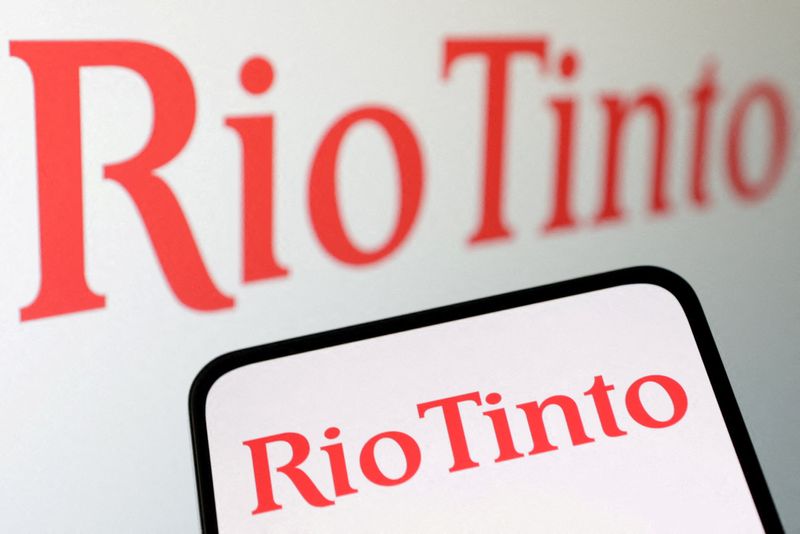By Ernest Scheyder and Clara Denina
(Reuters) -Rio Tinto has entered into talks to buy lithium miner Arcadium, three sources with direct knowledge of the negotiations said, a deal that would make Rio the third-largest producer of battery metal for electric vehicles.
Shares of Arcadium rose 36% in extended trading on Friday.
The talks are ongoing in London this week and will continue at the LME Week conference, one of the sources said. According to the second source, an offer is expected in the near future. The talks are ongoing and may not necessarily lead to a deal, the sources said.
Philadelphia-based Arcadium could be valued between $4 billion and $6 billion or higher, the third source said. None of the sources were authorized to discuss the negotiations publicly.
The deal would make Rio one of the world’s largest suppliers of the ultra-light metal, trailing only Albemarle (NYSE:) and SQM, just as demand is expected to rise later this decade due to the increasing use of lithium-ion batteries for electric vehicles and consumer electronics.
The recent decline in lithium prices, partly due to Chinese oversupply, has sent Arcadium shares down more than 50% since January, making it an attractive takeover target.
It was not immediately clear whether a transaction would involve mainly cash, stock or a combination of the two. According to the second source, Arcadium has selected two investment banks to handle negotiations with Rio.
Buying Arcadium would give Rio access to lithium mines, processing facilities and deposits on four continents to fuel decades of growth, as well as a customer base that includes Tesla (NASDAQ:), BMW (ETR:) and General Motors (NYSE:). ).
Arcadium and Rio Tinto (NYSE:) declined to comment.
The Anglo-Australian mining company is already one of the world’s largest producers of – used to make wiring, construction equipment, electronics and other appliances – as well as iron ore and other metals.
Arcadium has approximately 2,400 employees spread across nine countries. About 84% of sales come from Asia – the existing global center for lithium demand – giving it growth potential as EV projects expand in the Western Hemisphere, especially those supported by the US Inflation Reduction Act.
Rio faces strong opposition in Serbia to the proposed Jadar mine, for which it recently regained its permit. Local community members have repeatedly put pressure on Belgrade to block the project, which has the potential to supply much of Europe’s battery metal needs.
Arcadium considers it unlikely that Rio will ever be able to develop the Serbian project, the second source said.
Rio could also benefit from Arcadium’s expertise in direct lithium extraction, a growing segment of the lithium industry that aims to mechanically filter the metal from brine.
No company has commercially launched a DLE process without evaporation ponds, but Arcadium has been using DLE successfully with ponds in Argentina since the 1990s and its engineers are widely regarded as global experts.
Rio paid $825 million in 2022 for a DLE project in Argentina that has yet to produce the metal.
‘THE COMPLETE PACKAGE’
Arcadium was only formed in January through the merger of US-based Livent (NYSE:) and Australia-based Allkem, with each company given an equal number of seats on the company’s 12-member board of directors.
There has been speculation for weeks about a possible collaboration between Arcadium and Rio.
“Arcadium offers Rio the full package,” Scotiabank analysts said on September 10, adding that “the case (for a buyout) has become stronger.”
During a presentation to investors on September 19, Arcadium laid out an aggressive growth strategy to nearly triple its adjusted earnings by 2028 by developing its lithium projects around the world.

Rio’s interest in Arcadium comes amid a rising tide of interest in deals in the mining sector, especially for crucial minerals needed to power the global energy transition.
BHP – the world’s largest miner – made an unsuccessful bid for smaller rival Anglo American (JO:) earlier this year. Glencore (OTC:), BHP and others are seen as potential bidders for other crucial minerals projects.


